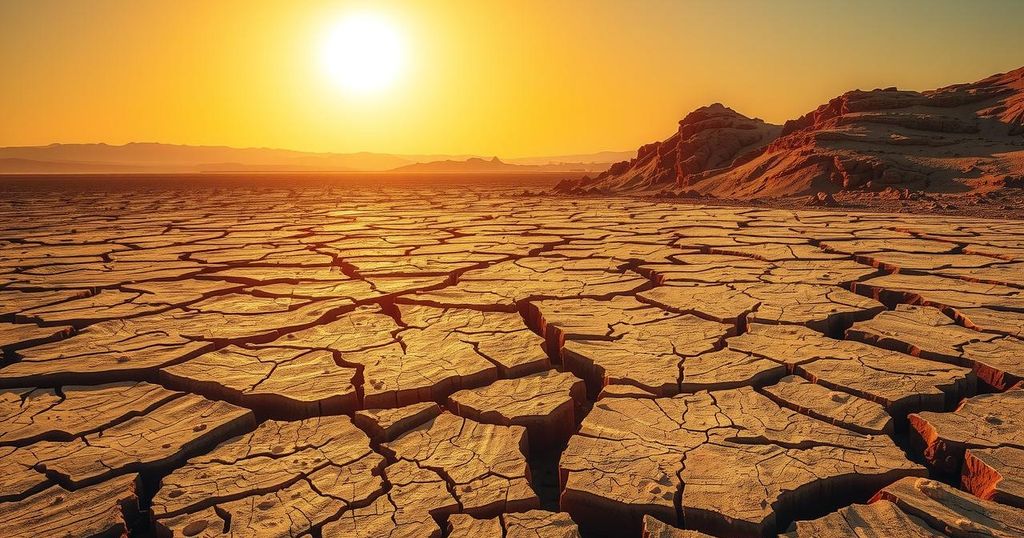A new study reveals that climate change has made heat waves in South Sudan ten times more likely, exacerbating the challenges faced due to ongoing conflict and food insecurity. The findings underscore the critical need for adaptations to safeguard health and education amid extreme temperatures, which could become increasingly common in the future.
A recent study by World Weather Attribution indicates that climate change has substantially increased the likelihood of extreme heat events in South Sudan. The research identifies that factors like the burning of fossil fuels in developed nations have made heat waves, such as the one that led to school closures in South Sudan in February, ten times more likely and two degrees Celsius hotter. This severe weather phenomenon is characterized by temperatures surpassing 42 degrees Celsius (107 degrees Fahrenheit).
South Sudan has experienced ongoing challenges, including conflict-driven instability and widespread food insecurity. Despite contributing minimally to global greenhouse gas emissions, the nation remains significantly affected by climate change impacts. Joyce Kimutai from Imperial College London states, “The continent has contributed a tiny fraction of global emissions, but is bearing the brunt of climate change.” This troubling dynamic is further compounded by the frequency and severity of heat waves, which disproportionately affect vulnerable populations such as children and pregnant women.
In addition to South Sudan, much of East Africa—including parts of Kenya and Uganda—has faced severe heat, prompting public health advisories to stay indoors and hydrate. However, adherence to these instructions proves difficult in regions with limited access to clean water and adequate shelter. In Juba, only 1 percent of the city’s area is green space, limiting cooling options for residents.
Adaptations to mitigate extreme heat effects have been proposed, such as improving ventilation, increasing tree cover, and enabling lighter paint for school buildings. Kiswendsida Guigma from the Red Cross Red Crescent Climate Center suggests that adjustments to school calendars and class schedules could also help alleviate disruptions caused by heat waves.
South Sudan, which has undergone devastating civil unrest, faces further hardships due to climate change. Though a peace accord signed in 2018 brought to an end a brutal civil war, the political landscape remains tense. Dr. Guigma emphasizes that “Climate change is clearly making life even harder in South Sudan, a country already facing economic challenges and periods of instability.” As global temperatures rise, the study predicts that similar heat waves may become a frequent occurrence, potentially manifesting annually by the century’s end.
Extreme heat conditions in the region are anticipated to persist, raising concerns over ongoing public health and educational disruptions for the vulnerable communities in South Sudan.
In summary, the recent findings highlight the significant impact of climate change on the frequency and intensity of heat waves in South Sudan, a nation already grappling with severe socio-economic challenges. Adaptation strategies are necessary to mitigate the adverse effects of extreme temperatures on public health and education. Without robust interventions, the cycle of vulnerability could be exacerbated by further global warming, highlighting the urgent need for both local and international responses.
Original Source: www.nytimes.com




